Diversity and Community Engagement Fund
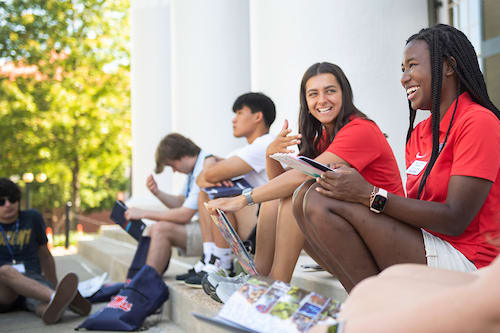 The Division of Diversity and Community Engagement supports the University of Mississippi in fulfilling its mission to transform lives, communities and the world. Our work engages with all campus and community stakeholders to foster belonging, enrich learning and development, enhance research and create equitable opportunities for all.
The Division of Diversity and Community Engagement supports the University of Mississippi in fulfilling its mission to transform lives, communities and the world. Our work engages with all campus and community stakeholders to foster belonging, enrich learning and development, enhance research and create equitable opportunities for all.
As we celebrate the 60th anniversary of James Meredith’s enrollment and the integration of the University of Mississippi, your support is crucial to deliver on the dreams of today’s students 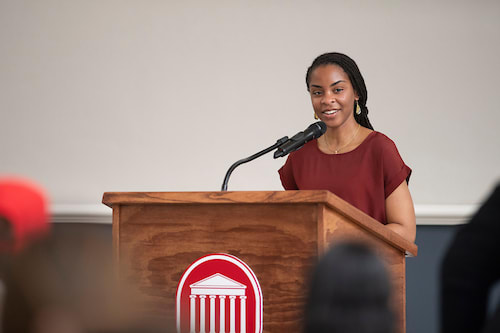 and generations to follow. Together, we can ensure our flagship university is an accessible and inclusive space where all students thrive.
and generations to follow. Together, we can ensure our flagship university is an accessible and inclusive space where all students thrive.
We are better when we work with others from different backgrounds to solve the greatest challenges of our campus and society. This is the transformative power of education, diversity and community engagement. All members of our community, particularly those who are historically underrepresented, should have the opportunity and support to successfully navigate the University of Mississippi.
Your support of the Diversity and Community Engagement Fund helps us build a better university, state and world by removing barriers and addressing inequities that exist in education.
The DCE Fund bolsters these initiatives: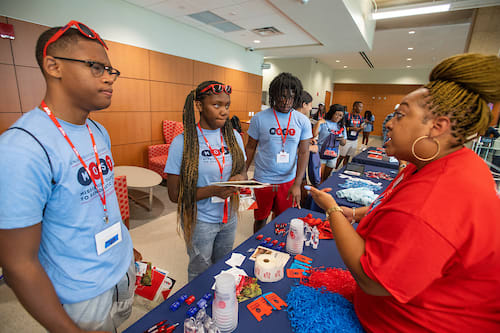
- The Center for Inclusion and Cross Cultural Engagement, where students build community and engage in cultural programming, mentoring and retention programs, and other initiatives that support their success.
- The Center for Community Engagement, where students, faculty and staff develop mutually beneficial connections
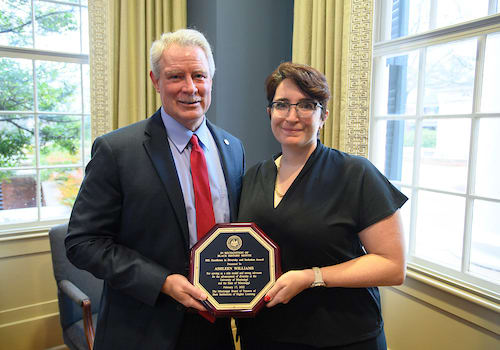 with community partners and community-engaged research, learning and service are supported.
with community partners and community-engaged research, learning and service are supported. - Diversity education across campus to support the knowledge, skills and awareness needed to cultivate an inclusive and equitable university.
- Awards and incentives that recognize the
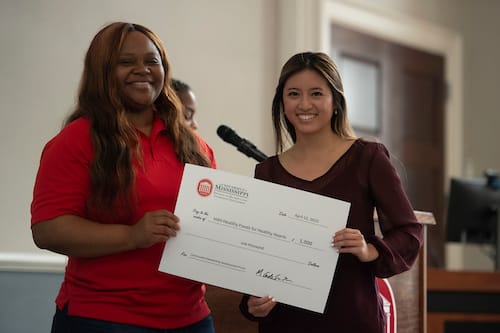 incredible work across our campus and provide support for innovation.
incredible work across our campus and provide support for innovation. - Dialogues on Diversity, Longest Table and other programmatic initiatives, where we celebrate, learn and connect on many topics that improve our institutional capacity toward diversity, equity, inclusion and community engagement.
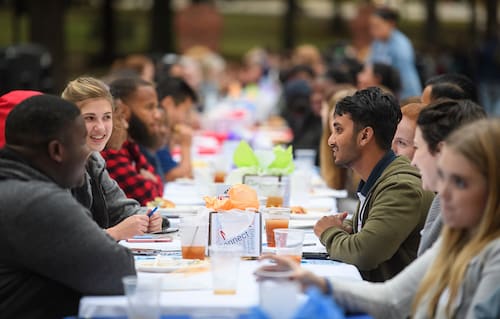
- Pathways to Equity: Diversity, Equity and Inclusion Institutional Strategic Plan. This plan, unveiled in 2021, lays the foundation for improving outcomes and meaningfully advancing diversity, equity and inclusion initiatives on our campus. The overarching goals, coupled with individual college/school- and division-level Equity-in-Action plans, provide a road map for building on existing work, promoting inclusivity at all levels for all members of our community, and advancing a more equitable environment and a better University of Mississippi.
The essential work of diversity, equity, inclusion and community engagement on our campus will require deep, sustained partnership across all areas of our institution and community. By taking this responsibility seriously and plotting a principled and measurable path forward, the University of Mississippi can play a role in setting an example for the nation and the world – and all of our stakeholders have a role to play. Please make a gift to the DCE Fund today!
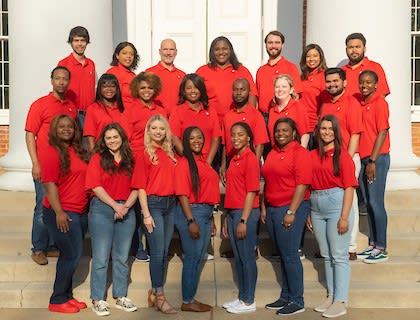
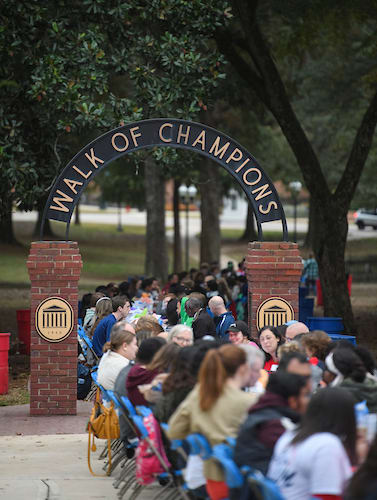
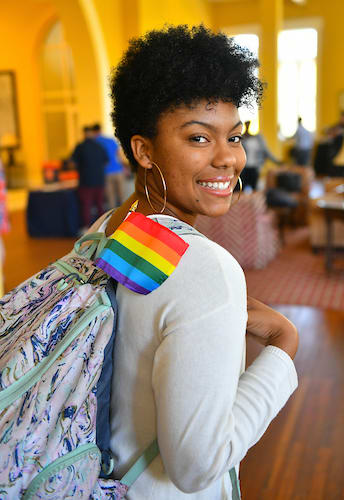
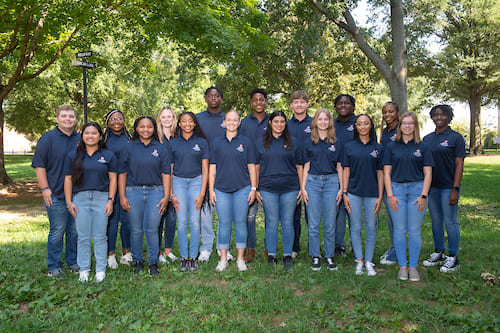
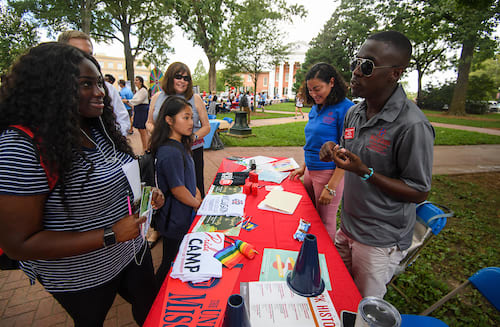
$10.01
Pushing the Flagship Forward
On October 1, 1962, James Meredith’s enrollment profoundly changed our institution for the better. Your support of the James Meredith Scholarship builds upon that legacy and declares the next 60 years as a time to achieve more.
$19.65
Bailey Continues the Mission
In 1965, Verna Bailey became the first Black woman to enroll in the University, bravely continuing the fight for equity within our campus community. Your support of the James Meredith Legacy Scholarship builds on Ms. Bailey’s legacy by providing opportunities for all students.
$69
Cue the BSU
The Black Student Union received its incorporation as a student organization on March 25, 1969. Since then, the organization has stimulated the intellectual, political, cultural, and social growth of all University of Mississippi students. When you support the James Meredith Legacy Scholarship, you create space at UM that builds community, supports leadership program, and raises awareness for diverse students.
$79
Introducing Miss Jackson
In 1979, Rose Jackson Flenorl became the first Black female student named to the UM Student Hall of Fame. Flenorl continues to serve our institution philanthropically and as a mentor. A gift of $79 to the James Meredith Legacy Scholarship continues Flenorl’s mission to provide opportunities for students to develop leadership, receive mentorship and find community among their peers.
$94
Call Me Dean Westerfield
In 1994, Dr. Louis Westerfield became the first Black Dean at UM when he was nominated to serve the UM School of Law. Upon his death in 1996, a former student said, “When they think of a dean, they think of a figurehead, but when I think of Dean Westerfield, I think of a friend, a father figure and a mentor. He truly is my hero.”
$220
March Against Fear
On June 6, 1966, Meredith set out from Memphis with an African walking stick in one hand, a Bible in the other, and a singular mission in mind. He planned to march alone 220 miles to the Mississippi state capital of Jackson to prove that an African-American man could walk free in the South. But on the second day of the March, Meredith was shot in the head, neck, back and leg by a white assailant. Remarkably, Meredith rejoined the march just 20 days later.
$341
AAS 341/ENG 322
This year, Dr. Ethel Scurlock was appointed Dean of the Sally McDonnell Barksdale Honors College, making her the first Black female Dean at the University of Mississippi. Dean Scurlock is among the most beloved professors on campus, having opened many students’ minds and hearts in her Survey of African American Literature courses. Your gift of $341 provides more learning opportunities like those that Dr. Scurlock has provided for 26 years and counting.
$451
Ole Miss Athletics Firsts
Ole Miss’ first Black student-athlete, Coolidge Ball, signed the Rebels’ last available basketball scholarship for the 1970-71 season. He led the Rebels with 42 assists in his first varsity season. Peggy Gillom was the first Black female student to receive an Ole Miss athletic scholarship. She owns the single-game Ole Miss record for rebounds at Tad Smith Coliseum with 20 rebounds. Ben Williams joined James Reed in 1971 to become the first Black students to sign football scholarships with the Rebels. Williams would amass 377 tackles for Ole Miss. In the 1976 NFL draft, the Buffalo Bills selected Williams in the 3rd round. Reed was drafted in the 9th round by the Cleveland Browns.
$800
The Ole Miss 8
In 2020, in the spot where 89 African-American students were arrested in 1970 during a peaceful demonstration on campus, the “Ole Miss 8” – eight student leaders who were expelled from every public institution by the state of Mississippi as a result of their protest – came back to gather to recall the event and receive an apology from the University. Your gift of $800 honors the sacrifice of these courageous trailblazers.
$1,500
First-Generation Change Makers
James Meredith was the first in his family to graduate from college. By giving $1,500, you help the more than 1,500 first-generation students at Ole Miss achieve this transformative milestone for their families and communities.
$2,000
Here's to You, Mr. President
In 2000 Nic Lott was elected by his peers to serve as student body president, the first Black student body president at the University of Mississippi. “One of the things I’m most proud of,” Lott said, “is that one day (after my election) Mr. Meredith said to me, ‘I chose Ole Miss, but Ole Miss chose you.’”
$15,000
A Revolution in Jackson
By the end of Meredith’s March Against Fear on June 26, 1966, the number of marchers who stepped in to continue Meredith’s mission reached 15,000. The resulting protest at the Capitol in Jackson is still the largest civil rights demonstration in Mississippi history. It was at this rally that Stokely Carmichael first publicly said “Black Power,” urging self-determination and Black pride. To many Mississippians, it was a great moment of inspiration.



